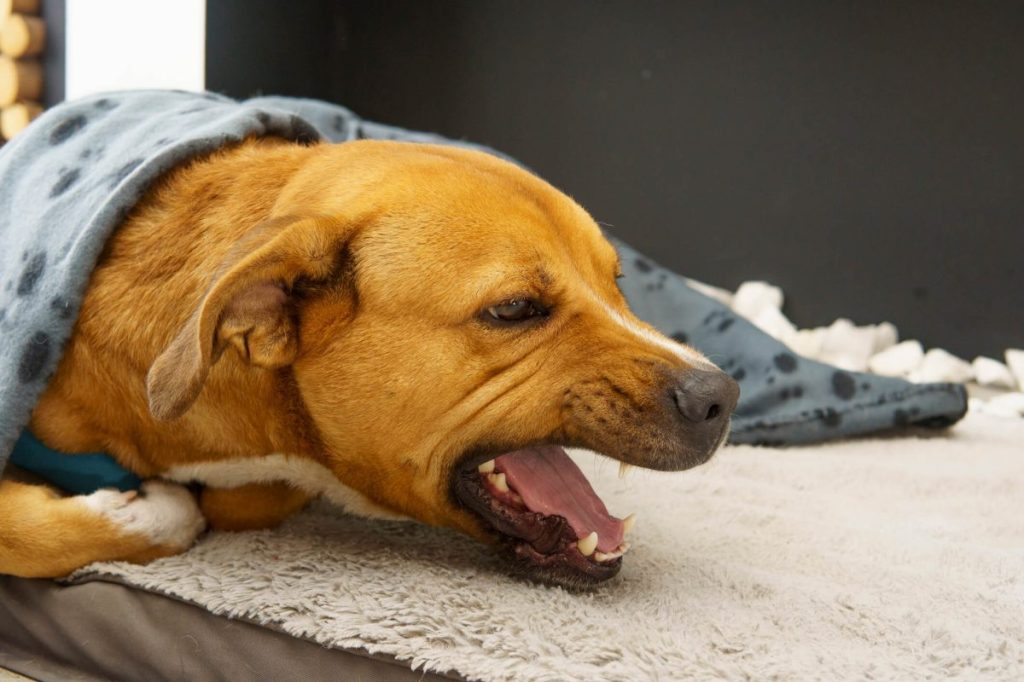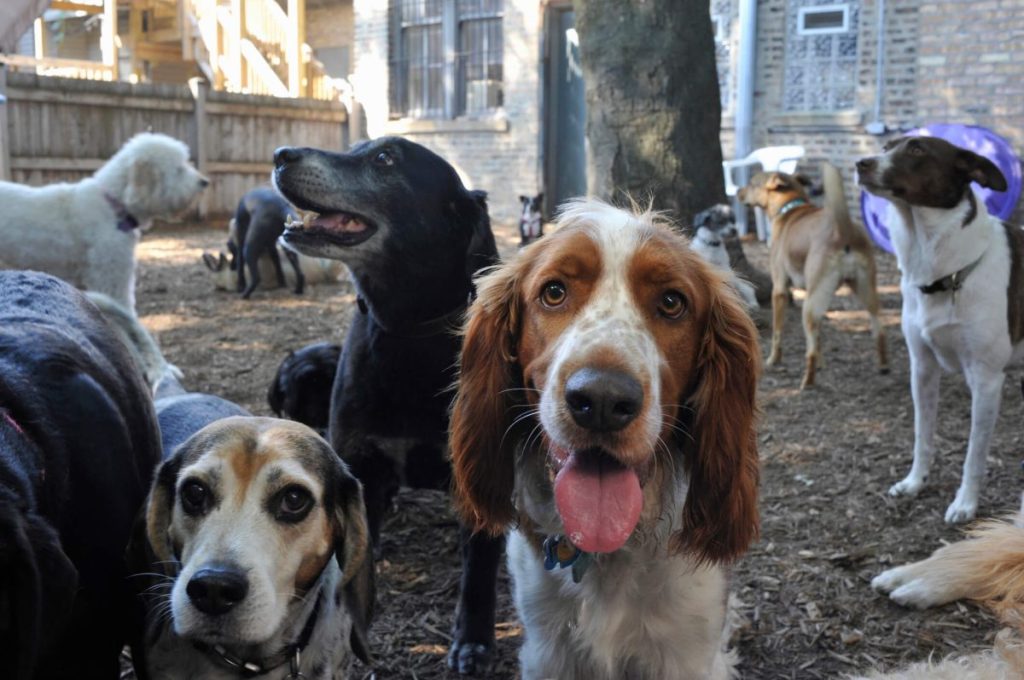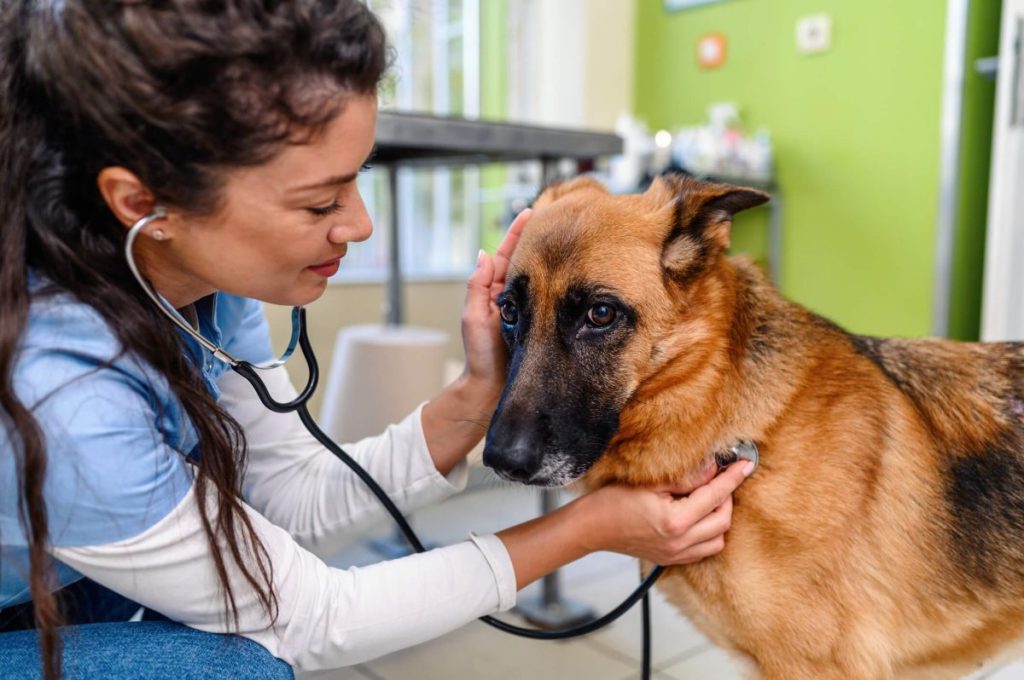Canine influenza — often referred to as dog flu — is a highly contagious respiratory disease that affects dogs. Unlike the seasonal flu that affects humans, canine influenza can occur year-round. It is caused by two distinct strains of the influenza A virus: H3N8 and H3N2. These strains are relatively new, and as such, most dogs have not developed natural immunity, making them highly susceptible to infection. While canine influenza is not typically fatal, it can lead to serious complications if not promptly addressed, especially in young puppies, senior dogs, and those with pre-existing health conditions.
Here’s what you should know about the symptoms, causes, and treatments for the disease.
Symptoms of canine influenza in dogs

The symptoms of dog flu can range from mild to severe and often mimic those of other respiratory infections, such as kennel cough. Common signs include:
- Coughing: This can be either a dry, hacking cough or a wet, productive one, and may persist for several weeks.
- Sneezing: Frequent sneezing is another telltale sign that your dog may have contracted the virus.
- Nasal and ocular discharge: Runny nose and watery eyes are common and can sometimes be accompanied by a yellow or greenish tint indicating secondary bacterial infection.
- Lethargy: Infected dogs often display signs of fatigue and a lack of energy.
- Fever: Dogs with canine influenza may run a fever, with temperatures ranging from 103°F to 105°F.
- Appetite loss: Reduced appetite and weight loss can also be indicative of the disease.
In severe cases, canine influenza can progress to pneumonia, which may be life-threatening if not treated immediately.
Causes of canine influenza in dogs

As previously mentioned, dog flu is primarily caused by two specific strains of the influenza A virus: H3N8 and H3N2. The H3N8 strain originally emerged from horses and adapted to infect dogs in the early 2000s. On the other hand, the H3N2 strain is believed to have originated in birds and was first identified in dogs in Asia around 2007 before spreading to the United States in 2015.
Both strains are highly contagious and can spread rapidly among dogs through respiratory secretions like coughing, sneezing, and barking. Canine influenza virus (CIV) can also be transmitted indirectly through contaminated objects such as food and water bowls, toys, leashes, bedding, and even the hands or clothing of humans who have had contact with an infected dog. The virus can survive on surfaces for up to 48 hours, on clothing for 24 hours, and on hands for 12 hours.
Environmental factors and the density of dog populations play significant roles in the transmission of CIV. Dogs in close contact at dog parks, boarding facilities, grooming salons, or social events are at a higher risk of exposure. Furthermore, infected dogs can shed the virus even before they show any symptoms. This makes it challenging to control the spread once it begins. Although canine influenza can infect dogs of all breeds, ages, and health statuses, those with compromised immune systems or underlying health issues are more susceptible to contracting the virus and may experience more severe symptoms.
How is canine influenza diagnosed?

If you suspect your dog might have the flu, take them to a veterinarian as soon as possible. During your visit, your vet will start with a detailed history, asking you about your dog’s symptoms, recent exposures to other dogs, and any relevant travel history. A physical examination will follow, where they will check for signs such as coughing, nasal discharge, and fever.
To confirm the diagnosis, your vet might recommend specific tests like PCR (Polymerase Chain Reaction) assays, which detect the presence of the virus’s genetic material in nasal or throat swabs. Another option could be serological tests that measure the levels of antibodies against the virus in your dog’s blood, indicating either a current or past infection. In some cases, a chest X-ray may be necessary to assess secondary bacterial infections or the extent of lung involvement, especially if pneumonia is suspected. These tests are essential because the symptoms of canine influenza can resemble other respiratory illnesses, and an accurate diagnosis is necessary to ensure your dog receives the appropriate treatment.
Treatments for canine influenza in dogs

While there is no specific antiviral treatment approved for canine influenza, supportive care and management strategies can significantly alleviate symptoms and aid in recovery. Here are some steps you can take to help your dog recover from the flu:
- Rest and hydration: Rest is crucial for your dog to recuperate. Ensure your pet has a comfortable, quiet space where they can relax. Keeping them hydrated is equally important. Offer fresh water regularly and consider using a pet-safe electrolyte solution if your vet approves.
- Medications: Your vet may prescribe medications to help manage your dog’s symptoms. These could include anti-inflammatory drugs to reduce fever and discomfort, or antibiotics if there’s a secondary bacterial infection. Follow the dosage instructions carefully and complete the full course of any prescribed medication, even if your dog starts feeling better.
- Nutritional support: A well-balanced diet is essential for your dog’s recovery. If your pet has lost their appetite, try offering bland, easy-to-digest foods like boiled chicken and rice. You might also consider using a high-calorie nutritional supplement, but always check with your vet before making any dietary changes.
- Isolation: After exposure to the virus, it typically takes two to four days for clinical signs to appear. This duration is known as the incubation period. While most dogs recover from the flu within two to three weeks, those infected with H3N2 must be isolated for 21 days, and dogs with H3N8 should be isolated for a minimum of seven days, as they may still remain infectious during this period. As such, make sure your pet has their own bedding, toys, and feeding area to minimize contact with other animals.
How to protect your dog from canine influenza?

Prevention is always better than cure. Here’s how you can ensure your pet stays safe and protected from canine influenza:
- Vaccinate your dog: The first and most effective step in protecting your dog from canine influenza is vaccination. Speak with your veterinarian about the available vaccines for dog flu.
- Avoid high-risk areas: Canine influenza is often spread in places where dogs are in close contact with each other. If there’s an outbreak in your area, it might be wise to limit your dog’s exposure to these high-risk environments. Socialization is important, but your dog’s health should come first during an outbreak.
- Practice good hygiene: Similar to human flu, maintaining good hygiene practices can help prevent the spread of canine influenza. Wash your hands thoroughly with soap and water after petting other dogs or handling objects that may be contaminated. Clean your dog’s belongings — such as food and water bowls, toys, and bedding — regularly with hot water and pet-safe disinfectants. If you have multiple dogs, ensure they each have their own set of items to minimize the risk of cross-contamination.
- Boost your dog’s immunity: A strong immune system can help your dog fight off infections more effectively. Ensure your dog has a balanced diet rich in essential nutrients, and consider supplements if recommended by your vet. Regular exercise and a stress-free environment also play a vital role in maintaining a healthy immune system.
- Stay informed: Stay up-to-date with information about canine influenza in your area. Local veterinary offices, animal shelters, and pet organizations often provide alerts and updates about outbreaks. Being informed will help you take timely precautions to protect your dog.
Which vaccines are available for canine influenza?
Currently, vaccines from Zoetis® and Nobivac® are available which simultaneously target both strains of the canine influenza virus. For the primary immunization, these vaccines are usually given in a series of two shots, administered two to four weeks apart. This is followed by an annual booster shot to maintain immunity. Puppies as young as seven to eight weeks old can start their vaccination series, which is particularly important if they will be exposed to environments where the virus is prevalent.
Remember, while the vaccine might not entirely prevent infection, it significantly reduces the severity and duration of the disease. The vaccines work by stimulating your dog’s immune system to produce antibodies against the virus, offering them a better chance of fighting off an infection if they are exposed.
As with any medical intervention, there can be side effects associated with the dog flu vaccine. Most commonly, you might notice mild symptoms such as lethargy, a slight fever, or localized swelling at the injection site. These reactions are usually short-lived and subside within a day or two. Severe reactions are rare but can include allergic responses like hives, facial swelling, or difficulty breathing. Always keep an eye on your dog after their vaccination and consult your vet if you notice any worrying symptoms. It’s also a good idea to discuss the benefits and risks of the vaccine with your vet to make an informed decision tailored to your pet’s specific needs and lifestyle.









